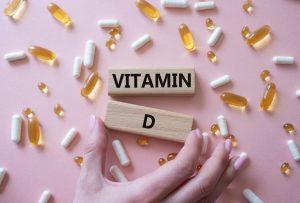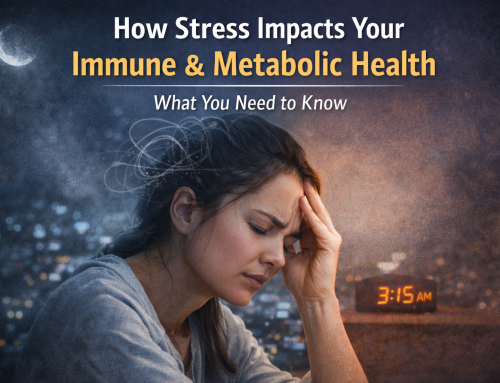What Vitamin Slows Aging? New Study Says Vitamin D3 May Be the Key
We’ve all seen the signs of aging—wrinkles, gray hair, and slower memory. But what vitamin slows aging at the cellular level? A groundbreaking study now points to vitamin D3 as a powerful ally in the fight against premature aging..
What Does Vitamin D3 Do for Aging?
A recent study published in the American Journal of Clinical Nutrition found that vitamin D3 may slow biological aging by preserving telomeres—the protective caps at the end of your DNA that naturally shorten over time. Telomeres are crucial for keeping your DNA stable during cell division, and shorter telomeres are linked to chronic diseases, inflammation, and premature aging.
Key Takeaways from the Study
- Study Name: VITAL Trial (Vitamin D and Omega-3 Trial)

- Participants: 1,054 adults aged 50+
- Duration: 4 years
- Supplement Dosage: 2,000 IU of vitamin D3 daily
- Result: Participants who took vitamin D3 had significantly less telomere shortening, slowing aging by nearly three years compared to those on placebo.
What Are Telomeres—and Why Do They Matter?
Telomeres act like the plastic tips at the ends of shoelaces, preventing your DNA strands from fraying. As you age, telomeres naturally shorten, which eventually leads to cellular dysfunction. Preserving telomere length has become a major focus in longevity research.
Vitamin D’s potential to preserve telomeres gives us a new way to think about healthy aging—not just how we look, but how our cells function.
So, if you’re wondering what vitamin slows aging, science is now pointing to vitamin D3 as a promising candidate.
Why Vitamin D Deficiency Is So Common
You may be surprised to learn that vitamin D is one of the most common nutrient deficiencies, especially in adults over 50. Your body produces vitamin D through sunlight exposure, but:
- You may live in a cloudy or northern climate.
- You may use sunscreen or spend most time indoors.
- Darker skin tones produce less vitamin D naturally.
- Most foods don’t naturally contain enough vitamin D.
How Much Vitamin D Do You Really Need?
The Recommended Dietary Allowance (RDA) for adults is:
- 600 IU/day for adults up to age 70
- 800 IU/day for adults over 70
But the VITAL study used 2,000 IU of vitamin D3 daily, a higher dose that showed promising results in slowing cellular aging.
⚠️ Talk to your doctor before starting a supplement at this dose, especially if you’re taking medications or have health conditions.
Best Sources of Vitamin D
If you prefer food over supplements, include these vitamin D-rich foods in your diet:
- Fatty fish (salmon, mackerel, sardines)
- Fish liver oils
- Egg yolks
- Mushrooms exposed to sunlight
- Fortified foods (milk, cereals, orange juice)
Even with a balanced diet, many adults still fall short—making supplements a practical option for maintaining optimal levels
The Bottom Line: Vitamin D3 and Healthy Aging
This new research reinforces what health experts have been saying: Vitamin D3 isn’t just for bones—it may help protect your DNA and slow aging at the cellular level.
If you’ve ever asked what vitamin slows aging, vitamin D3 now stands out as a researched and science-backed option.
If you’re over 50, not getting much sun, or have been told you’re deficient in vitamin D, this might be the nudge you need to ask your healthcare provider about testing your levels or adding a 2,000 IU vitamin D3 supplement.
Ready to Take Control of Your Health?
As a Certified Orange County Nutritionist and Life Coach with 12+ years of experience, I help clients cut through the noise and take real steps toward healthy aging and weight management. No gimmicks, just science-backed strategies that work.
📩 Email me at Eberlorie@gmail.com or message me on WhatsApp: https://wa.link/avteer to book your FREE 30-minute consultation.






